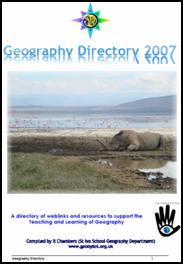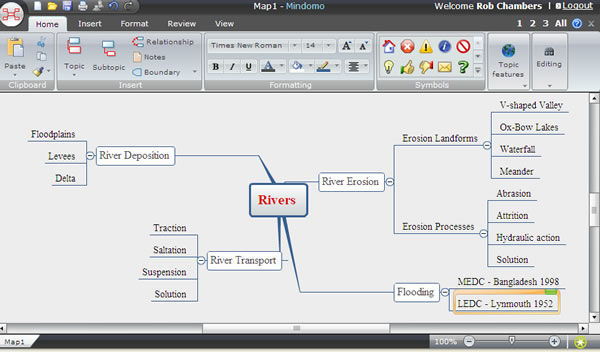ONLINE RESOURCES TO SUPPORT SESSION
If you have just sat through the session I hope it has been useful and has given you some food for thought! Perhaps even some ideas for trying out in your main placement school. Above is a copy of the powerpoint materials used and below are the promised links to help you follow up some of the ideas that we have discussed today.
Downloads:
-
A guide to setting up a WordPress Blog – “Starting your own Blog” – a teacher’s guide to setting up and running and educational blog using wordpress.” (pdf format)
-
A guide to setting up a Blogger Blog (many thanks to John Barlow for this) guide to setting a Blogger weblog
-
Virtual Learning Environments – Example of a VLE – Digital Brain Overview
-
Getting Started with a Website – To help get you started I have put together an overview of 10 things to start thinking about when setting up a website (it is a .pdf file and will require Adobe Acrobat). The links in the leaflet can also be accessed directly here.
For a detailed overview of the presentation including further links – see the electronic handout I produced when I first presented a similar session to this at the SAGT 2007 conference. Also use the page links at the top of the blog to explore other uses of new technologies – for example Interactive Whiteboards.
Promoting the responsible use of the internet and online technologies
As we continue to make more use of the technology that more and more of our students have access to, such as the internet, mobiles, social networking sites, blogs etc. it is important that as well as using these technologies to support the education of our students that we also educate our students on the responsible use of these technologies! On the one hand we need to promote and encourage student creativity in the use of online technologies but we also need to them the ‘rules’, it is acknowledged in the literature on this that the rule of thumb is, if it is not acceptable in the physical world it is not acceptable in the virtual world.
Whilst in school, students are to a greater extent protected by the safety of school and county filtering systems, most of our students use of online technologies takes place outside of school and often not within an educational context, for example use of messenger or social networking sites with friends. It is therefore important that if we are to utilise these technologies in achieving our educational aims and objectives we ensure that we teach responsible use and raise awareness amongst students of the potential dangers and how they can be minimised or avoided through responsible use.
As well as online safety issues we also need to give due consideration to other issues for both staff and students in the creation and use of online materials. When creating or posting materials online, copyright issues must be considered to avoid accountability for copyright theft, schools need to ensure there is no infringement of the intellectual property of others in materials posted online. Permission must be sought in all cases where materials are from other sources, this includes text, video, music and images. Likewise schools need to give due consideration as to how their own materials posted on the web are copyright protected. Further advice and information related to these issues can be found on the Becta e-safety website. The following pages on the Becta site are in particular worth looking at:
- The key features of a safe school website
- What are the benefits and risks of weblogs?
- Supporting pupils in the development of e-safety skills
- Using images and video safely on school websites
- Social networking
Finally we also need to encourage students using online materials to give consideration to the plausibility / accuracy of the information posted and to teach students how to use material selectively, appropriately and making use of referencing to acknowledge sources that are used.
Ollie Bray, Depute Head at Musselburgh Grammar School recently ran a very successful evening session on “Internet Safety for Parents and Families” to encourage collective responsibility and to get parents involved in learning more about how to support ‘responsible use’ of the internet. Ollie’s event was supported by LTS and the Child Exploitation Online Protection Agency (CEOPA). An account of the evening, including some copies of slides used can be found on Ollie’s excellent blog.
The thinkuknow website, includes information for children of all ages (the site is well organised according to age groups) on technologies such as mobiles, social networking, messanger, chatting on the internet, blogs etc. with consideration of what is good, what is not and how to stay safe. There is also advice for victims of cyberbullying. The site also contains specific areas both for parents and for teachers / trainers. The teachers/trainers area includes a wide variety of resources available for download, including videos for training, posters, lesson plans and leaflets and posters can also be ordered to support presentations in schools.
Further information on safe use of the internet / online technologies:
- Safe Blogging tips for Teens
- Childsnet – Blog Safety (includes a downloadable booklet for parent / carers
- E-Safety (online advice pages from Becta)
- E-Safety downloadable document (.pdf) (Becta) – for developing whole school policies to support effective practice
- Be safe online
- Chat Danger – how to keep safe whilst chatting online
- Sids Online Safety Guide (aimed at KS2)
FREE RESOURCES:
Finally there are a couple of free resources I thought you might be interested in:
Coming of Age: An Introduction to the New World Wide Web
 The first of these resources “Coming of Age: Introduction to the new world wide web” is a superb free booklet (edited by Terry Freedman) packed with case studies on the use of emerging web 2.0 technologies such as blogs etc.. and including the thoughts of teachers / consultants on the use of these new technologies and how pupils respond with consideration given to case studies. Coming of Age 2.0 – the second edition of the booklet which is set to be an even weightier tome with a wealth of new case studies and ideas related to emerging technologies is due for release shortly. A “Coming of Age” ning has been set up as a discussion area for the booklet and anyway wishing to discuss the potential of exploring the use of web 2.0 tools can join.
The first of these resources “Coming of Age: Introduction to the new world wide web” is a superb free booklet (edited by Terry Freedman) packed with case studies on the use of emerging web 2.0 technologies such as blogs etc.. and including the thoughts of teachers / consultants on the use of these new technologies and how pupils respond with consideration given to case studies. Coming of Age 2.0 – the second edition of the booklet which is set to be an even weightier tome with a wealth of new case studies and ideas related to emerging technologies is due for release shortly. A “Coming of Age” ning has been set up as a discussion area for the booklet and anyway wishing to discuss the potential of exploring the use of web 2.0 tools can join.
Geography Directory 2007
 This is a 179 page directory of weblinks and resources that I have put together to support the teaching and learning of geography. It has been compiled from a variety of sources, including personal research, links from colleagues and suggestions / recommendations made by fellow geography teachers on the SLN forum. The directory can be accessed as a downloadable .pdf file in which all links can be accessed directly by clicking through from the interactive .pdf file (Adobe Acrobat is required for this). Due to the transient nature of the internet and the length of time taken in compiling this directly, unfortunately it is likely that there may already be some ‘dead links’, please feel free to e-mail me if you find any! I am hoping to update the directory for release of a second edition sometime in 2009. The directory can be downloaded directly from the GeoBytes Website and can also be found on the resources section of the Geographical Association website.
This is a 179 page directory of weblinks and resources that I have put together to support the teaching and learning of geography. It has been compiled from a variety of sources, including personal research, links from colleagues and suggestions / recommendations made by fellow geography teachers on the SLN forum. The directory can be accessed as a downloadable .pdf file in which all links can be accessed directly by clicking through from the interactive .pdf file (Adobe Acrobat is required for this). Due to the transient nature of the internet and the length of time taken in compiling this directly, unfortunately it is likely that there may already be some ‘dead links’, please feel free to e-mail me if you find any! I am hoping to update the directory for release of a second edition sometime in 2009. The directory can be downloaded directly from the GeoBytes Website and can also be found on the resources section of the Geographical Association website.
Feedback and Questions
Please feel free to email me or leave comments here if you have any further questions on anything covered during today’s session or if you would like any further information on anything shown during the presentation.
Links to my professional development blogs:
www.igeog.wordpress.com (personal blog)
www.ictacrossthecurriculum (my AST blog -designed to support staff and build confidence in the use of ICT in teaching and learning in the 21st century classroom – this is added to fairly frequently and has lots of ideas for using ICT in the classroom – including training materials for the use of SMARTboards).
Links to the St Ivo School Geography Department online resources are as follows:
GeoBytes Website – the main portal homepage (with links to all resources)
GeoBytes – AS/A2 Online Learning Community (examples of VLE pages – some of these are login only and are for students at St Ivo – some pages are public) – this was set up as a trial for VLE use in the 2005-2006 academic year. (the department are looking to re-develop this to coincide with teaching the new AS/A2 specifications for teaching in September 2008).
GeoBytesGCSE – a blog to support the OCR A GCSE course – a post is added for each key concept with a summary of key ideas and links to background reading, animations, videos, presentations and revision materials where appropriate.
GeoBlogBytes – my personal teacher blog used to support the specific classes I teach
GeoBytesAdvancedExtension – a blog set up to support students in preparation for the WJEC Advanced Extension Geography Paper
GeoBytesCoursework – a GCSE coursework support blog







